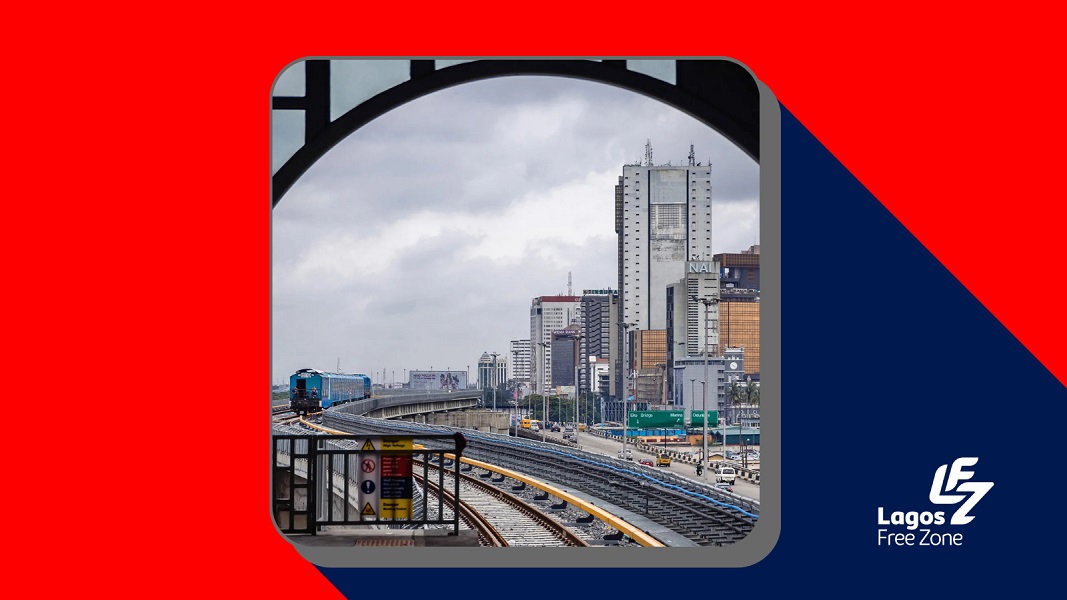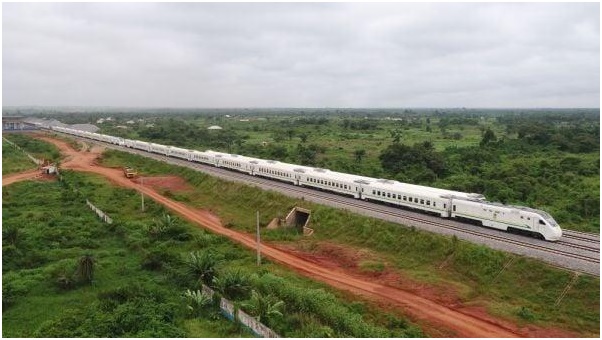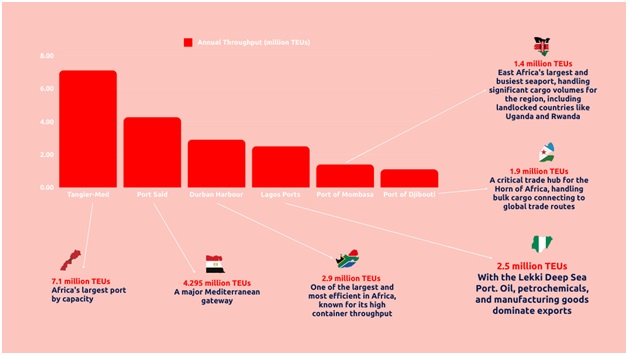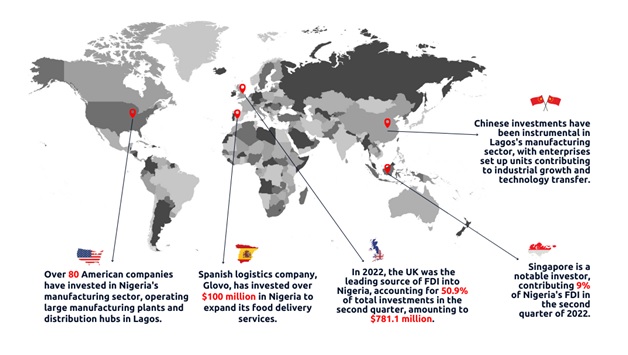Lagos: Africa’s Powerhouse and Solutions Incubator for the 21st Century
04 February, 2025
With a GDP of $477 billion as of 2024, Nigeria has one of the largest economies in Africa—fourth after South Africa, Egypt, and Algeria—accounting for 17–18% of Africa's total GDP. Lagos contributes 26.7% of Nigeria's GDP and is the dominant driver of its industrial and commercial sectors. Therefore, based on Nigeria's GDP, Lagos’ economy is valued at approximately $143 billion. The city of Lagos surpasses the GDP of several African nations, such as Kenya (approx. $107 billion) and Ghana (approx. $76 billion).
If Lagos were a country, it would rank as one of the top 15 largest economies in Africa, thereby solidifying its role as a powerhouse. For international investors seeking opportunities in manufacturing, energy, petrochemicals, and logistics, Lagos offers a unique convergence of resources, infrastructure, and innovation.

Aerial View of Lagos City | Acasia Ventures
The Lagos Advantage
An unparalleled geographical connectivity positions Lagos as a linchpin in the global supply chain, especially for industries reliant on efficient import-export operations. This is just one of the five reasons to expand your manufacturing business into Lagos.
A dynamic epicentre for industry and commerce that addresses some of Africa’s most pressing challenges, Lagos produces 65% of Nigeria’s industrial output. With Nigeria being Africa’s largest oil producer, Lagos’ petrochemical and manufacturing sectors play a critical role in fuelling industrial activity across the region. The influx of investment in the energy sector can reduce the continent’s reliance on imported petroleum products while advancing renewable energy initiatives to bridge power gaps, especially in remote areas.
Related: Investment Opportunities in West Africa's Emerging Industries
Lagos’ expanded transport infrastructure also addresses logistical inefficiencies, boosting trade and supply chain operations across West Africa while promoting industrialization, attracting foreign direct investment and fostering job creation, critical to addressing economic stagnation in Africa. A manufacturing hub like no other, industries such as chemicals, pharmaceuticals, construction, and consumer goods have found a thriving home in the city.
The city's economy is projected to reach $150 billion by 2030, driven by industrial expansion, technological innovation and favourable, pro-business government policies.

Infographic: Lagos’ Contribution to Africa’s Economy
Logistics Infrastructure in Lagos
With projects like the Lagos-Ibadan Standard Gauge Railway—a section of the proposed Lagos-Kano Standard Gauge Rail Project which connects Lagos to Nigeria’s industrial hinterlands, the integration of rail, road, and sea transportation is a step in the right direction and further highlights the vision and direction of the city. Lagos is building a logistics ecosystem capable of supporting large-scale manufacturing and competing favourably with the best in the world.

Lagos-Ibadan Standard Gauge Railway | International Railway Journal
The city's strategic location along the Atlantic coast positions it as a vital gateway for trade across West Africa. This advantage has been amplified by the Lagos Free Zone (LFZ), Nigeria’s first privately-owned free zone, which offers seamless integration with the Lekki Deep Sea Port, one of Africa’s largest with a 1.2 million twenty-foot equivalent units (TEUs) annual capacity (expected to handle up to 2.5 million TEUs in its next phase).

Infographic: Lagos’ port activity compared to other African ports
Energy Solutions for Africa
Africa’s energy deficit remains one of its greatest developmental hurdles, but Lagos is leading the charge in tackling this issue with large-scale initiatives in natural gas, petrochemicals and renewable energy. For example, the $19 billion Dangote Refinery is set to be one of Africa’s largest oil refineries, with a daily processing capacity of 650,000 barrels of crude oil that will make it the largest single-train refinery in the world. Beyond refining, the facility will produce petrochemicals crucial for manufacturing industries, such as plastics, fertilizers, and pharmaceuticals. With Lagos Free Zone’s proximity to the refinery, companies located within the zone can benefit from quick and easy access to industrial raw materials at a very competitive cost.
Lagos’ strides in renewable energy development also merits recognition. The state government has partnered with private investors to launch solar power projects and mini-grids, aiming to bridge the energy gap for industrial and residential users alike. January 2023 marked the initiation of a significant mini-grid project in Epe as part of the Interconnected Mini-grid Access Scheme (IMAS), developed under the Rural Electrification Agency (REA) with support from the German Agency for International Cooperation (GIZ).

A 0.88MW solar hybrid interconnected mini-grid in Epe, Lagos | Business Day
A first prototype phase, designed to generate 0.88 MW of power, was completed within the projected 10-month timeline, providing clean and sustainable energy to homes and small businesses in the town of Epe. The project has entered its second phase to expand capacity to 2 MW for larger-scale productive use which aligns with the Lagos State Government's Off-Grid Electrification Strategy and Action Plan, targeting 1 GW of solar photovoltaic generation by 2030. These efforts not only enhance local manufacturing capacity but also reduce dependence on fuel imports.
Petrochemical Industry Driving Manufacturing Growth
This expansion across multiple manufacturing sectors underscores Lagos’ potential to reduce Africa’s reliance on imported goods. Companies from countries like China, the UAE, and the U.S. continue to partner with local stakeholders to expand production capacities and introduce cutting-edge technologies.
The main point here was that Lagos’ petrochemical industry is fueling manufacturing growth and diversification, with Lekki Industrial Hub playing a key role. Here's a smoother rewrite.

Infographic: FDI Flow into Lagos
As Africa’s urbanization accelerates, the demand for infrastructure, energy, and manufactured goods will skyrocket. From its industrial dominance to its strategic trade infrastructure, Lagos is a cornerstone in Africa's economic structure. At the forefront of this is the Lagos Free Zone (LFZ), offering a platform for global and local manufacturers to scale their operations and access markets across West Africa and beyond.
Companies operating within LFZ benefit from its integration with Lekki Deep Sea Port, proximity to petrochemical resources, cutting-edge infrastructure, and easy access to Nigeria's largest consumer market. Whether you're looking to expand into manufacturing, petrochemicals, or logistics, the Zone delivers a competitive edge by reducing operational inefficiencies, providing tax advantages, and streamlining supply chain operations.
The future of African industrialization begins here, so read about The Rise of Manufacturing in Nigeria: Trends and Opportunities


